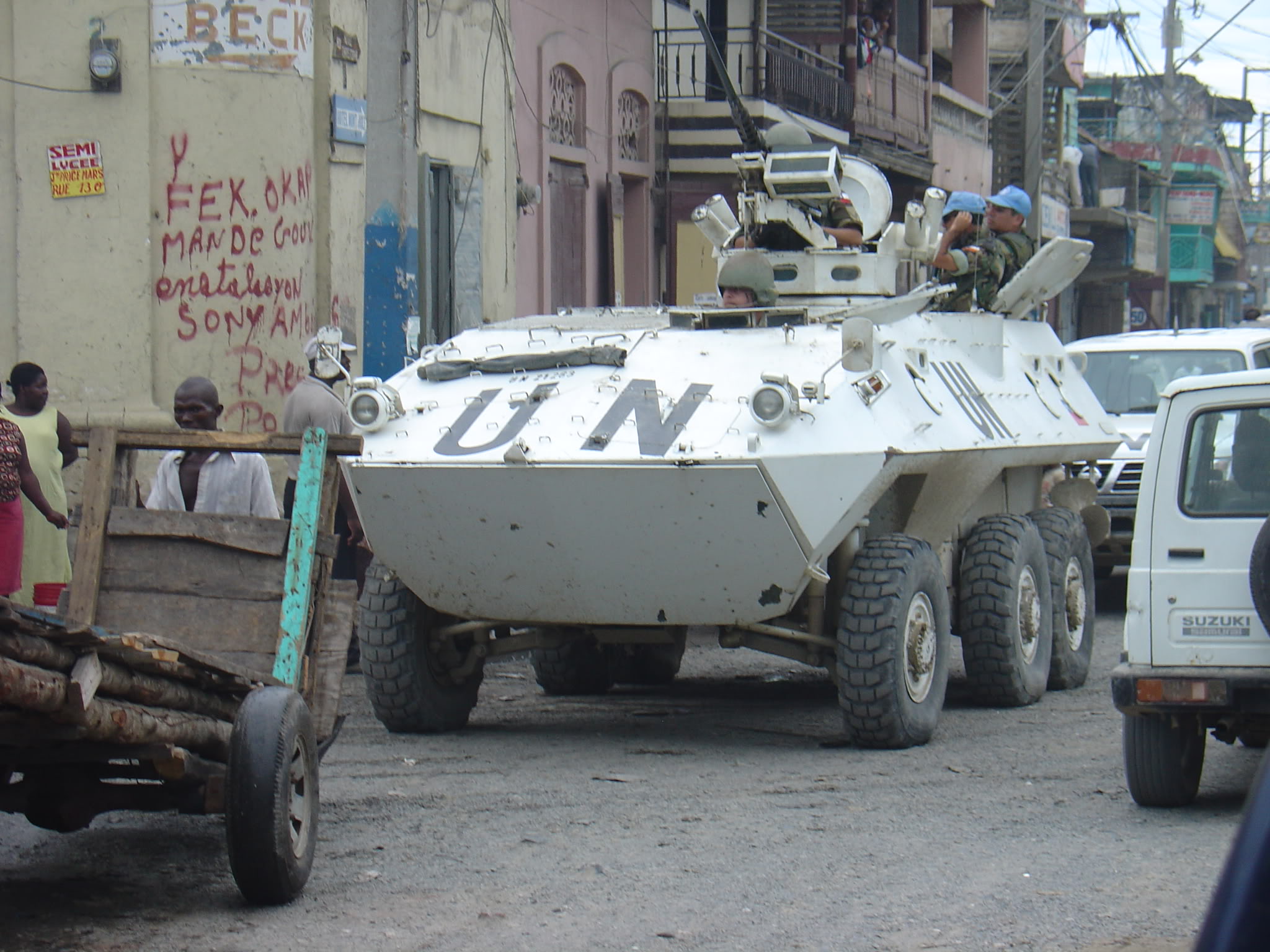Uganda must stay the course in Somalia
Following a critical UN report alleging that Uganda and Rwanda have been supporting the March 23 Movement (M23) in the Democratic Republic of Congo (DRC), Uganda has threatened to withdraw its forces from regional peacekeeping engagements; an ill-conceived step which undermines its national interests.
Suggested Reading |
Conflict Background |
GCCT |
By Richard Obedi
In Africa today there is a widespread loss of popular confidence in state institutions and processes, coupled with the progressive deterioration of public services and basic state functions that protect against terrorism and violence. The continuous militarization of politics in Africa before, during and after elections is a disconcerting sign; whilst the security apparatuses often function as a ‘state within a state’. The continent has witnessed the emergence of elite guards operating with impunity, with private militias that terrorize political opponents and suspected ‘enemies’. Furthermore, the rise of factionalised ruling elites employing destructive nationalistic rhetoric and the widespread intervention of external factors further fuels instability.
These worrying development warrant a better understanding about peacekeeping missions, which have changed profoundly over the last two decades. In the first decade after the UN’s creation, deployment occurred only when a ceasefire had been agreed and the conflicting parties gave their consent. The main aim was to separate the two fighting parties, and the overall scale of deployments was rather small. Peacekeepers were lightly-armed and were not expected to ever fight, with the bulk of UN peacekeeping forces being provided by Western countries.
Nowadays, peacekeeping looks very diverse. It increasingly deals with intra-state conflicts; often when fighting has not completely ceased. Missions are much larger and peacekeepers are more heavily-armed. The consent of all parties to a conflict is sometimes unattainable. Mandates include the protection of civilians, the reform of the security sector, the disarming of combatants and institution building. Peacekeeping missions have become larger, more complex and more dangerous. Western powers still provide the lion’s share of financial support, but have become increasingly reluctant to commit troops; thereby leaving a vacuum that is filled by poorer countries, including Uganda.
Rwanda and Uganda criticized by the UN
A recent UN report alleged that Uganda and Rwanda have been supporting the March 23 Movement – commonly known as M23 – through direct troop reinforcements in the Democratic Republic of Congo (DRC), weapon deliveries, technical assistance, joint planning, political advice and through facilitating external relations. The ‘amateurish’ report – as Uganda’s prime minster referred to it – accuses key government officials of involvement. Though the UN is reported to have distanced itself somewhat from the report, Uganda has threatened to withdraw its forces from all regional peace engagements – including Somalia, DRC, the Central Africa Republic (CAR), the Ivory Coast, and Darfur.
Somalia is an important case. The African Union Mission in Somalia (AMISOM) was established to conduct peace support operations (particularly curbing the proliferation of small arms and light weapons), and to create a safe and secure environment in preparation for a transition to the UN. In this context, Uganda’s 15th November ultimatum to the UN Security Council to withdraw its troops makes absolutely no sense. In doing so, Uganda knows that it has pressed hard on the West, which is not willing to send its own troops to Somalia. Threatening to withdraw and hoping that the UN will drop its own report might turn out to be a miscalculated move.
Uganda’s deployment to Somalia was, in the first instance, a Pan African mission; in accordance with the Government’s Pan African agenda in the horn of Africa. With reports of terrorists in Somalia, such as al-Shabaab, re-grouping in the event that AMISOM – or the estimated 6,000 People’s Defence Force (UPDF) troops – withdraws, it makes little sense to complete the job; irrespective of the UN Expert Report. Otherwise the losses incurred to date by the UPDF will be in vain. Uganda therefore needs to reconsider its position on this matter; a position motivated solely to defend those officials implicated in the report. The cost of evacuating these soldiers implies will entail huge costs; unnecessary and uncalled for expenditures.
Uganda and its entire leadership can and should avoid creating this unnecessary state of quagmire. Uganda is confronted with increasing ethnic tensions, acute land pressures, widening economic divides, deepening socio-political cleavages and rampant corruption. I was once taught by the Hon. Norbert Mao, then MP for Gulu Municipality – when serving as his parliamentary assistant in the 7th parliament of the Republic of Uganda – that “things that do not matter must never be at the expense of things that matter”. Putting M23 ahead of things that matter – particularly peacekeeping deployments to Somalia – is a fundamental mistake that the Ugandan government must immediately rectify.
Richard Obedi is executive director of The Populace Foundation-Uganda (TPF-Uganda), a member of the Global Coalition for Conflict Transformation.




















Uganda seems to be acting like a local “Collaborator” in the US foreign policy in Africa,partly manifested by the US Afro-Command Forces. Museveni has enough problems at home,e.g. the Lord’s Army secessionist militia in Northern Uganda,Rwanda/E.Congo/M23 involvement, oppression of the Baganda & opposition parties ,corruption etc. He is merely ‘externalizing focus’ by posing as an ‘African ‘leader when he he has failed as a ‘Ugandan’ leader! He is addicted to ‘Power’ & dare not give it up ,for fear of retaliations,if he dares to retire!His trigger-happy Army in Somalia will invoke revenge attacks on innocent Ugandans at home. What a lack of fore-sight by Museveni.
RT @TransConflict: Uganda must stay the course in Somalia: Following a critical UN report alleging that Uganda and Rwanda have bee… ht …
RT @TransConflict: Uganda must stay the course in Somalia: Following a critical UN report alleging that Uganda and Rwanda have bee… ht …
RT @TransConflict: Uganda must stay the course in Somalia: Following a critical UN report alleging that Uganda and Rwanda have bee… ht …